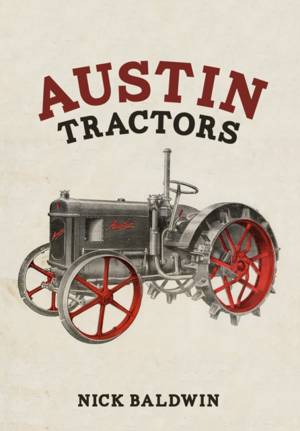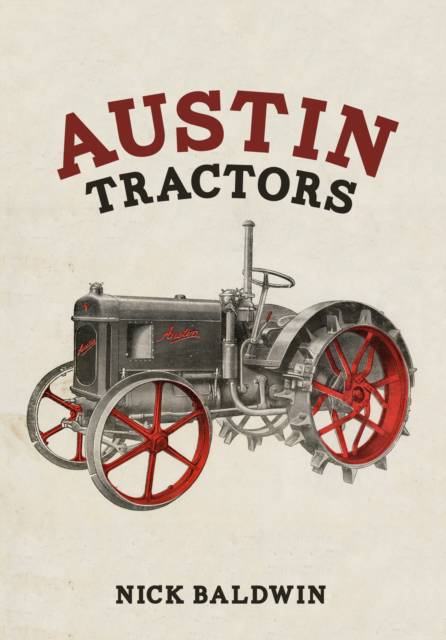
- Afhalen na 1 uur in een winkel met voorraad
- Gratis thuislevering in België vanaf € 30
- Ruim aanbod met 7 miljoen producten
- Afhalen na 1 uur in een winkel met voorraad
- Gratis thuislevering in België vanaf € 30
- Ruim aanbod met 7 miljoen producten
Zoeken
Omschrijving
Like Henry Ford, Herbert Austin had farming roots. Both brought motoring to the masses and both attempted to take the physical drudgery out of farming by introducing mechanisation. Austin imported American machines in the First World War and heard about the revolutionary new Fordson. His take on the new rigid, frameless technology was the 1919 Austin R, built at his Birmingham car factory. The inexorable reduction of the price of Fordsons saw Austin move his tractors to the more protected French market, where they soon challenged Renault's dominance. A former leather works with farming estate at Liancourt, near Paris, became exclusive home to Austin's tractors, and diesel technology was adopted there long before it was introduced at Austin in England. The Second World War saw Liancourt producing German military vehicles and the imprisonment and in some cases execution of the Austin management. The dreadful conditions at Liancourt were highlighted at the Nuremberg Trials. Afterwards, there was a brave attempt to revive the French tractors and British Austin engines were used in Bristol crawlers. This book tells the fascinating and largely untold story of the tractors made by one of Britain's biggest car makers, and also looks other uses of Austin engines in the Austin Champ and Gipsy.
Specificaties
Betrokkenen
- Auteur(s):
- Uitgeverij:
Inhoud
- Aantal bladzijden:
- 128
- Taal:
- Engels
Eigenschappen
- Productcode (EAN):
- 9781445668284
- Verschijningsdatum:
- 15/08/2017
- Uitvoering:
- Paperback
- Formaat:
- Trade paperback (VS)
- Afmetingen:
- 163 mm x 231 mm
- Gewicht:
- 317 g

Alleen bij Standaard Boekhandel
+ 44 punten op je klantenkaart van Standaard Boekhandel
Beoordelingen
We publiceren alleen reviews die voldoen aan de voorwaarden voor reviews. Bekijk onze voorwaarden voor reviews.











